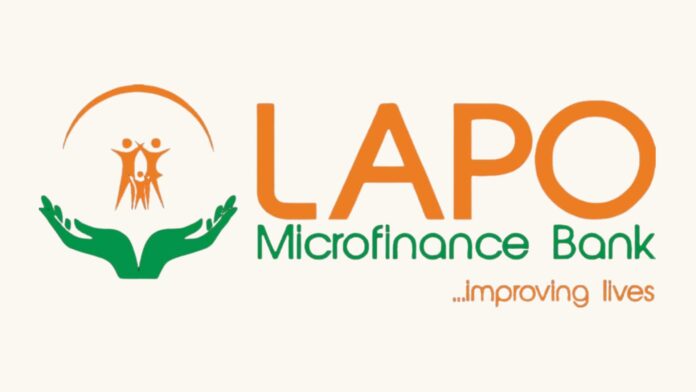LAPO Microfinance Bank, one of Nigeria’s leading microfinance institutions, is driving conversation on climate and sustainable finance. Its goal is clear: to promote inclusive growth and strengthen resilience for low-income communities.
This focus emerged during the second edition of the Sustainable Finance Conference, themed “Microfinance for Climate Resilience: Empowering Communities, Driving Innovation, Shaping Policy.”
The event brought together experts in finance, sustainability, and governance to discuss how microfinance can help communities adapt to climate change and support small businesses in a warming world.
The Managing Director of LAPO Microfinance Bank, Cynthia Ikponmwosa, said the bank began exploring sustainable financing as far back as 2012.
“We started by providing loans that enable people to purchase solar products and home solar systems,” she said.
“That was our entry point into supporting clean energy adoption, and we’ve been doing that for quite some time.”
She explained that the bank now partners with small businesses and renewable energy vendors to expand access to affordable clean energy and green agricultural solutions.
Discussions at the conference revolved around climate finance, climate justice, and sustainable funding for small and medium enterprises (SMEs). Speakers agreed that microfinance institutions have a vital role in driving climate adaptation across Africa.
Professor Franklin Ngwu, of Lagos Business School, defined climate finance as funding that helps reduce or adapt to the effects of climate change. He stressed the urgency of scaling resources.
“Africa needs over $300 billion annually to tackle its climate challenges,” he said.
“Over ten years, that’s about $2.5 trillion. But what we currently get is just one percent of that. Ninety-nine percent remains unfunded.”
He warned that the continent’s economic losses from climate impacts are already severe. “Africa’s losses are between $289 billion and $440 billion,” he said, citing droughts in East Africa, floods in the West, and rising temperatures in the North.
Ngwu urged more partnerships between microfinance institutions, development partners, and NGOs to close the gap and strengthen community-level resilience.
Ndidi Nwuneli, President of the ONE Campaign, delivered another keynote address. She called for a new framework that puts women at the heart of climate finance.
“Women are the most affected by climate change, but they’re also part of the solution,” she said. “Empowering them changes narratives and builds resilience in communities.”
Nwuneli highlighted the agricultural sector as both vulnerable and essential. She urged financial institutions to integrate farm insurance, drought pricing, and risk-sharing mechanisms into agricultural financing.
“Finance and insurance must go hand in hand,” she said. “The insurance industry must work closely with banks to design products that manage risk effectively.”
She also called for wider access to financing for SMEs and low-income households, insisting that such products should include guarantees and safety nets.
Nwuneli criticised the lack of accountability from developed countries over their climate commitments.
“Africa didn’t cause the climate crisis, yet we’re paying the highest price for it,” she said. “We must demand guarantees, instruments, and subsidies from those responsible.”
She also noted that Africa must learn to rely on its own strength.“We should be talking about Nigerian wealth for Nigerian development,” she said.
“Our money should build our nation through credible institutions that deliver real impact.”
The conference ended with a shared call for collaboration. Stakeholders agreed that finance, policy, and innovation must work together to empower communities and secure a sustainable future for Africa.
Do you want to share your impact stories or pitch the coverage of your CSR event to us? E-mail: editor@impactwatch.net or *Phone +234-806-795-0250 (Whatsapp &Text)





